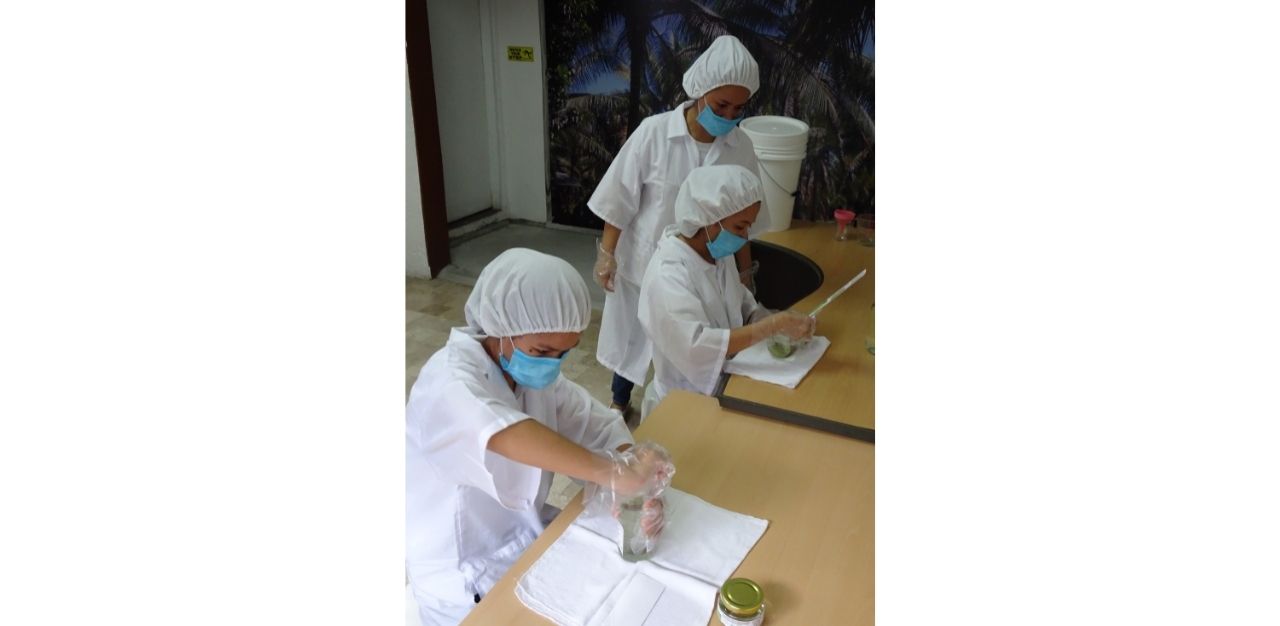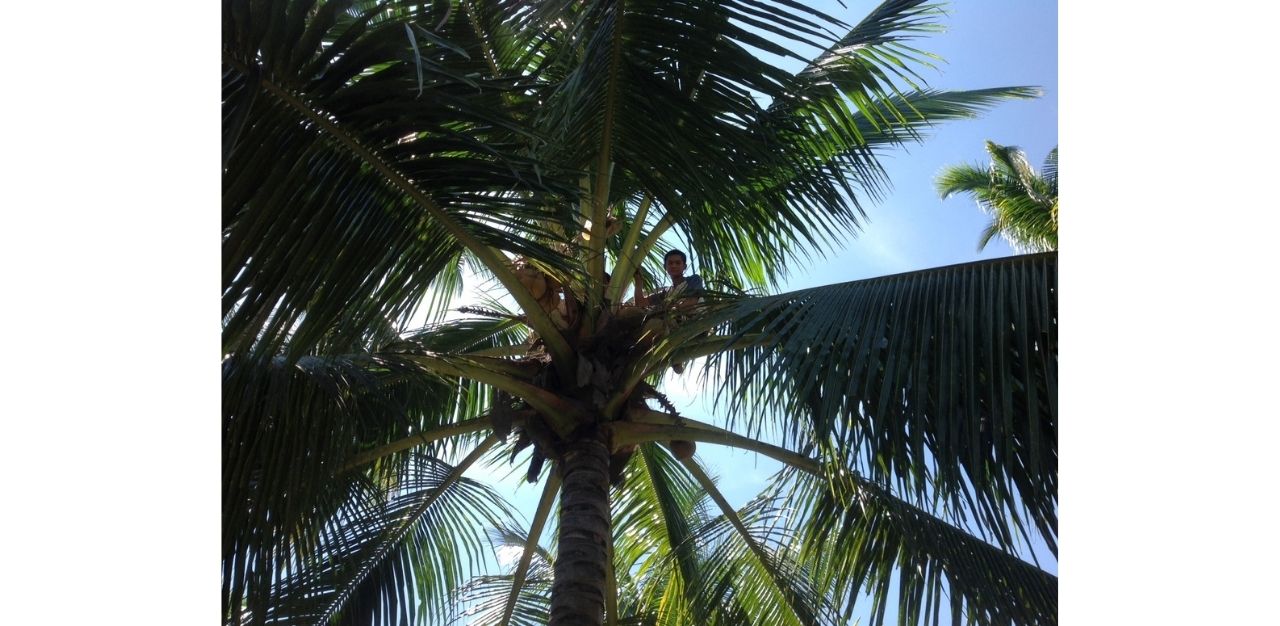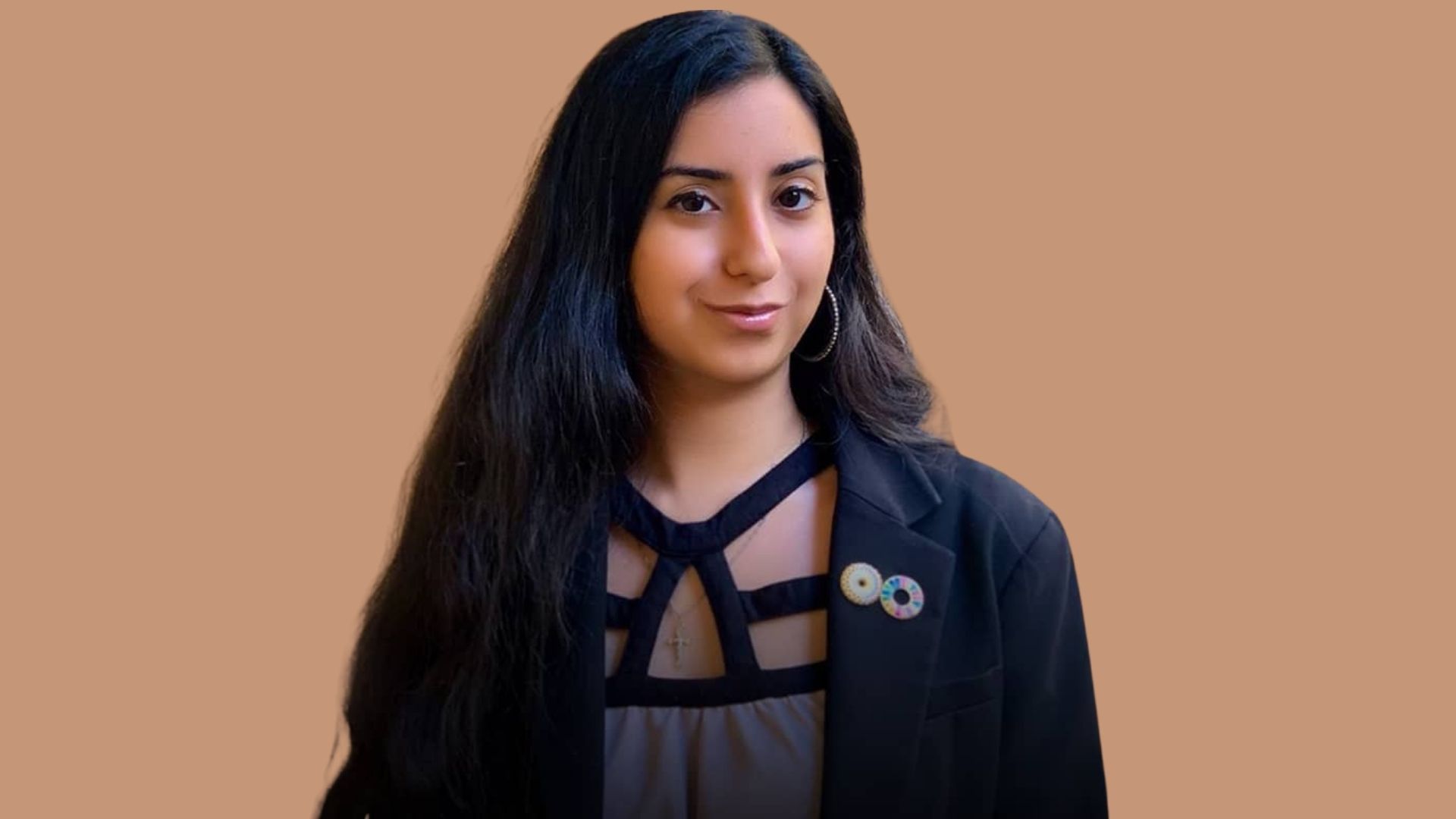Ms Simarna Singh was only 18 in 2017 when she became a United Nations (UN) Youth Ambassador. Despite being a Singaporean, she represented the United Arab Emirates (UAE) at global sustainability conferences such as the 25th Conference of Parties (COP 25) and then moved on to work as a sustainability consultant, as well as keynote speaker and moderator for more than 70 major sustainability conferences and events worldwide.
“I think that a lot of my sustainability education came purely from practical exposure — it’s not something that I studied or got a degree in,” says Ms Simarna. “That’s something that I often like to highlight because I think that anybody can take a conscious step towards sustainability if they have a positive intent.”
Five years later, she is now the founder of a successful Singapore-based social enterprise, Coco Veda — a sustainable and socially-conscious brand with more than 100 handcrafted coconut and plant-based health and wellness products.
“It’s not something I run on my own. I got a lot of support from family, friends, and mentors — the women and farmers are the ones who have done more work on the ground than me,” says the woman entrepreneur.
Where many other brands jumped on the sustainability bandwagon for an easy marketing advantage — contributing to the rising occurrence of greenwashing — Ms Simarna aligned her brand to the UN Sustainable Development Goals (SDG) way before it became cool.
Coco Veda works directly with the women and farmers on the ground in the Philippines with the aim of uplifting them out of poverty and putting money directly into their hands. Running on an all-women’s operations team, the brand has managed to empower women with not just livelihoods, but the dignity that comes with having a standing in their communities.
TheHomeGround Asia sits down with Ms Simarna to find out how she channelled her multitude of experiences in the global sustainability scene to build an authentically impact-driven enterprise.
TheHomeGround Asia (THG): Tell me more about your time as a UN Youth Ambassador.
Simarna Singh (SS): I had the opportunity to be among one of the few selected under the youth programme for UN Global Compact. I lived and studied in Dubai for quite a few years, and at the time, my university extended an opportunity to be part of Masdar’s Future Sustainability Leaders programme. I was one of the very few non-Emiratis to be picked into this programme which was spearheaded directly under the Abu Dhabi Government.
I was very fortunate to be part of the UAE National Youth Delegation to attend COP 25 in Madrid, Spain, as well as a conference in Russia that was organised by the United Nations Industrial Development Organization (UNIDO). I will always be grateful for this opportunity to witness the delegations participate at a high-level policy conference where I even had the opportunity to network with ministers on a first-hand basis, and to ask them what their vision for their country is.
THG: How did it help you with building Coco Veda?
SS: I think all of these learnings really helped me to connect the dots, not just from a governmental or policymaking standpoint, but how this would drive business decisions, and how to get corporations involved. It also made me think about how I could get people on a day-to-day basis to contribute to sustainability — because people often shy away when you mention sustainability and even tend to get confused. They think it’s so technical, but it’s really not! It could just be small changes that you practise on a day-to-day basis.
I had the opportunity to learn sustainable impact reporting for businesses during my time at the UN Global Compact. That was very interesting for me, because I think there’s this common concern that reporting is just for marketing purposes. At Coco Veda, we tried to change that! We embedded sustainability within the business model to make sure that we are actually making a difference in people’s lives. So, I think all these experiences helped me identify the gaps in corporate sustainability, but they also became opportunities that I could use for Coco Veda.
THG: What made you want to go into the business aspect of sustainability? Tell me more about Coco Veda’s business model.
SS: I think that sustainability can’t be achieved unless you’re sustainable and profitable yourself. Like any business today, we have our own objectives to meet. So at Coco Veda we focused on a triple bottom line business model — that’s people, planet and profit.
Our products are made by women from the Philippines, who we upskill and train. We also get raw materials, such as oil and sugar, from local farmers — and by doing so, we are contributing to their upliftment out of poverty.
What makes Coco Veda’s business model stand out is that we have embedded sustainability throughout. As we scale in volume and become more profitable, we will hire more and more women as none of our products are made by machines!
THG: Why and how did you try to come up with an all women’s operations team?
SS: We recognise that a lot of women in less developed or underdeveloped countries don’t get the same opportunities as men. I think that a lot of these women have shared with us that they feel that men are the only breadwinners in their families and that women’s sole purpose is to get married and look after the families. However, we are trying to change this narrative – by providing opportunities to these women, so they can also showcase their growth and progress in our social enterprise. They truly love Coco Veda’s ethos because it empowers them to make a difference on a day-to-day basis.
On the manufacturing process, we did explore multiple countries before choosing the Philippines to locate our operations. The reason is they have an organised farmer cooperative structure [which allows us to directly provide income to the farmer cooperatives themselves].

THG: Have you managed to meet the women on the ground that you work with?
SS: Absolutely. We have our own facility in the Philippines and we interact with them on a day-to-day basis. We currently are working directly with about eight to 10 women. As we scale in volume, there are certain months we take in more part-timers, but we also take the time to upskill and train them, provide them with the relevant training, certifications and health checks before they join us.
What I love about working with our women team is that they can give suggestions and inputs on how to change our product formulations, and I think that gives them a lot of authority — which is what we try to do at Coco Veda. We want to empower these women to be able to make decisions, and then in the future, we hope that our women operations team will provide advice and mentorship to other women who are starting their careers. I think that’s something that a lot of companies can take inspiration from — not using inclusivity as just a marketing tactic, but really demonstrating the changes that we’re making in these women’s lives.
THG: What makes Coco Veda different from other ethical brands or eco brands?
SS: From what we know, we’re probably one of the rare brands that is alcohol-free — which is how we got our halal certification. There’s no water in any of our products, not even our body washes and shampoo, which is very, very rare to find in the market today, especially when it comes to body washes and shampoos in a liquid and not powdered form.
We are using very few resources with everything being plant-based and handmade — our water and energy footprints are low to minimal. Our products are very affordable and long-lasting for our customers, which I think gives the opportunity for a lot of people to try sustainable products — the common issue is that sustainable products are so much more expensive, and that’s one thing we decided we were not going to do from the start.
We’re essentially a one-stop shop with about 80 products, all the way from cleaning, personal care to wellness and pet products. We’ve also aligned our business model to the Sustainable Development Goals (SDGs) since our conception in 2017 — we did it way before it became a trend many businesses hopped on to.
THG: How have you managed to not use water in your products?
SS: We have developed our formulations in collaboration with our consultants. Each of our products is very concentrated, and virgin coconut oil is one of our lead ingredients, alongside other plant-based extracts and essential oils that make up the entire product.
You are likely to see aqua as the first ingredient in most products, and we’ve completely eliminated that, which also reduces the chance of bacteria.
However, with that said, it’s not cheap to do something like this. It requires innovation costs for research and development. But our products last longer that way, so some brands might choose not to do it to maintain their sales and profits.
THG: How did you manage to ensure that your products are natural, organic, and cruelty-free?
SS: We have acquired a wide range of certifications — ISO, GMP, Halal, USDA organic. We are very compliant with international standards and are regularly audited by our certifiers, even though everything is done in a small facility.
THG: Was it a tough process to get all these certifications, and do you think more brands should get certified?
SS: I think the issue with certifications is that they’re very expensive, and hence very difficult for small businesses. The challenge in the coconut industry is that the farmers are below the poverty line, that they don’t have money to buy fertilisers, so naturally, everything is already organic. But at the same time, certifications are created to validate processes but just wish it was more accessible to smaller businesses. Since profit is a priority, it can defeat the purpose, especially for those making an impact.

THG: Are there alternatives then?
SS: What we wanted to do in the long run was actually do a blockchain pilot to build transparency and traceability in the supply chain, because that carries more value in the digital environment that we live in.
With blockchain, we would be able to trace back to when the farmer cut the coconut, the exact date, the name of the woman who made the product, giving them digital identities. And finally, when it reaches the customer, where the product travelled from and to. I think that carries more weight than certifications today, and I do think we will see such changes happening.
We did a pilot with our blockchain partner in Silicon Valley, in collaboration with UPS. We’re looking at continuing this perhaps in the next two years when we have a little bit more scalability.
THG: Finally, do you think that the profit-driven nature of most businesses is able to reconcile with the demands of the climate crisis?
SS: Sustainability is something governments and businesses have prioritised in their respective national agendas.
A lot of businesses are still at the awareness stage and are still trying to understand how to implement it into their business models.
Seeing the direction that the Singapore Government is taking, it won’t be long before sustainability becomes somewhat mandatory for all companies, and I presume regular audits will be done.
The only thing I hope to see more of is for businesses to quantify their impact and not just state their initiatives. So for example, contributing to a farmer’s income by two times and showcasing their progress over the course of a year. Without a doubt, that carries much more impact!
Join the conversations on TheHomeGround Asia’s Facebook and Instagram, and get the latest updates via Telegram.





























